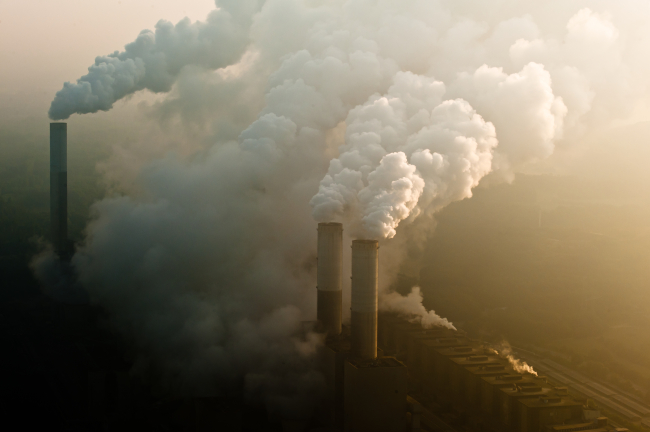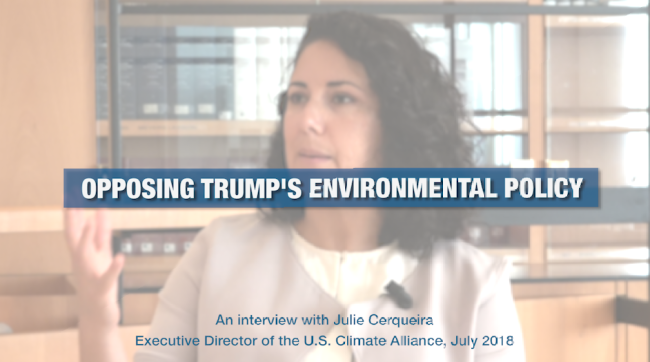Road to Paris: What Would Be a Successful Outcome for COP21?
Eight months before the opening of the Paris climate conference (COP21), it can be reasonably argued that a global climate agreement is now within reach.
From 2020 to 2030, from Copenhagen to Paris: a mindset change for the European Climate Policy?
The European Councils of March 2007 and October 2014 have defined the major guidelines of the European climate policy for the 2010-2020 and 2020-2030 decades. These commitments have then been used as negotiation roadmaps for two major conferences on climate held under the United-Nations umbrella, in Copenhagen in 2009 and in Paris in December 2015. In both cases, the aim was, and still is, to reach a global agreement to take over the Kyoto Protocol. The first one was a failure for the European diplomacy and all hopes are now placed in the second, which may well be the last chance for the international climate talks.
European Green Deal, Three Years Later
The European Green Deal (EGD) is the single most defining policy initiative of the Von der Leyen Commission. Since its publication in December 2019, it has become the European Union’s (EU) new raison d’être.


What can we expect from Russia at COP26?
We ask experts whether the Kremlin’s latest moves on climate, including its 2060 net-zero target, heralds genuine change or more greenwash.
Russia has been seen as a climate pariah by the international community for some years. It was one of the last counties to ratify the 2015 Paris Agreement – not until September 2019, at the UN’s Climate Action Summit.
Opposing Trump's Environmental Policy
An interview with Julie CERQUEIRA, Executive Director of the U.S. Climate Alliance.


Opinion : "No common view on the role of nuclear energy at COP climate talks, but individual countries can decide"
A year after the landmark COP21 climate discussions, the ambitious Paris Agreement entered into force just before COP22 began in Marrakech, Marrocco. With this latest round of talks new over, Carole Mathieu of Ifri debriefs Nuclear Report on what happened in Marrakech, the importance of the decarbonization agenda, and on the silent place nuclear energy occupies at the UNIFCCC negociations.
To Read the Full Interview click here


What new climate measures are G7 countries taking after Paris deal?
A month after COP21 summit, club of major economies weighs policy tweaks to meet tough global warming goal.
How to reflect non-parties contributions? The Taiwanese experience with climate action
Minister Kuo-Yen Wei, the third speaker to our conference on Climate Action beyond COP21, shared his insights on how Taiwan, which is not an official party to the UNFCCC, is determined to contribute to the global fight against climate change by taking action domestically. Mr. Wei is the current Minister of the Environmental Protection Administration of Executive Yuan, ROC (Taiwan).
What chances do we have to stay below the 2°C limit?
Jean Jouzel, the second speaker to our conference on Climate Action beyond COP21, shared his insights on the aggregate effect on national climate pledges and adressed the issue of consistency with the globally agreed long-term goal of keeping the average temperature rise below 2°C. Mr Jouzel is a climatologist, research director at CEA and former vice-president of the scientific working group of the IPCC (2002-2015).
Key challenges for COP21
Yvo de Boer, the first speaker to our conference Climate Action beyond COP21, shared his insights on what should be the core elements of the Paris agreement. Mr de Boer is the Director General of the Global Green Growth Institute and he was the Executive Secretary of the United Nations Convention on Climate Change between 2006 and 2010.
Support independent French research
Ifri, a foundation recognized as being of public utility, relies largely on private donors – companies and individuals – to guarantee its sustainability and intellectual independence. Through their funding, donors help maintain the Institute's position among the world's leading think tanks. By benefiting from an internationally recognized network and expertise, donors refine their understanding of geopolitical risk and its consequences on global politics and the economy. In 2025, Ifri supports more than 80 French and foreign companies and organizations.










